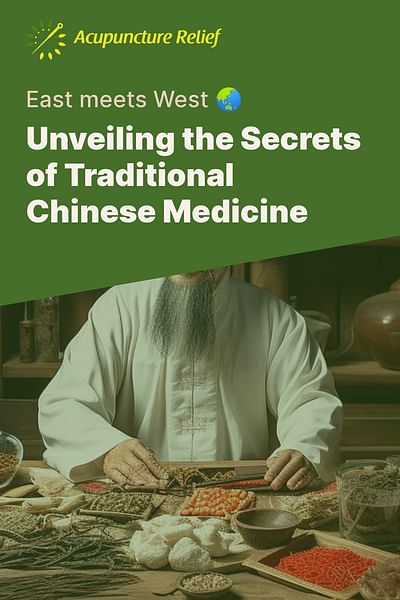Brooke Collier, Ph.D., is a certified acupuncturist boasting over 15 years of experience in the industry. She obtained her Doctorate in Acupuncture and Oriental Medicine from the Pacific College of Oriental Medicine. Specializing in pain management and women's health, Brooke is dedicated to informing the public about the numerous advantages of acupuncture and holistic health practices.
Traditional Chinese medicine (TCM) and Western medicine are two distinct approaches to healthcare, each with its own unique principles and methods. In this article, I will explain how TCM is used and how it differs from Western medicine.
Traditional Chinese Medicine (TCM)
TCM is a holistic system of healthcare that has been practiced for thousands of years in China and other parts of East Asia. It is based on the belief that the body is a complex network of interconnected systems and that health is achieved through balance and harmony within these systems.
In TCM, the body is seen as a microcosm of the universe, and the principles of yin and yang and the flow of Qi (pronounced "chee") are fundamental. Yin and yang represent opposing forces that need to be balanced for optimal health, while Qi is the vital energy that flows through the body's meridians or energy channels.
TCM practitioners use various techniques to restore balance and promote the body's natural healing abilities. The most well-known technique is acupuncture, which involves the insertion of thin needles into specific points on the body to regulate the flow of Qi. Other TCM modalities include herbal medicine, cupping, moxibustion, and dietary therapy.
How TCM Differs from Western Medicine
While Western medicine focuses on diagnosing and treating specific diseases or symptoms, TCM takes a more holistic approach, considering the whole person and their unique constitution. TCM practitioners aim to identify and address the underlying imbalances that contribute to illness, rather than just treating the symptoms.
One key difference between TCM and Western medicine is the diagnostic process. In TCM, practitioners use a combination of observation, questioning, and palpation to assess a patient's overall health and identify patterns of disharmony. This comprehensive approach allows for personalized treatment plans tailored to each individual's needs.
Another difference lies in the treatment methods. Western medicine primarily relies on pharmaceutical drugs, surgery, and other invasive procedures to treat illnesses. In contrast, TCM emphasizes natural therapies, such as acupuncture and herbal medicine, to stimulate the body's self-healing mechanisms and restore balance.
TCM also places a strong emphasis on prevention and maintaining overall well-being. Practitioners may recommend lifestyle modifications, dietary changes, and stress reduction techniques to support long-term health.
Integrating TCM and Western Medicine
Both TCM and Western medicine have their strengths and limitations. While Western medicine excels in acute care and emergency situations, TCM can be effective in managing chronic conditions and promoting overall wellness. Many patients find that integrating both approaches can provide a more comprehensive and holistic healthcare experience.
It's important to note that TCM should always be practiced by licensed and trained professionals. If you're interested in exploring TCM, I recommend consulting with a qualified TCM practitioner who can assess your specific needs and develop a personalized treatment plan.
In conclusion, TCM is a holistic system of healthcare that focuses on restoring balance and promoting the body's natural healing abilities. It differs from Western medicine in its approach to diagnosis, treatment methods, and emphasis on prevention. Integrating both approaches can offer a well-rounded approach to healthcare. If you'd like to learn more about acupuncture and TCM, feel free to explore our site, Acupuncture Relief, for more information.















